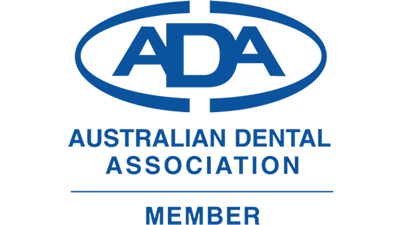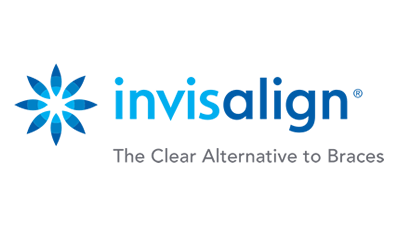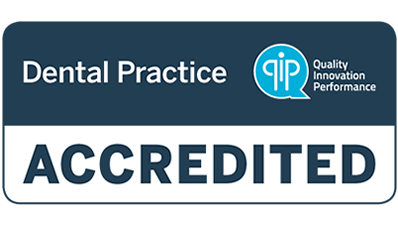Top 7 Tips for Effective Root Canal Prevention
1. Regular Dental Check-ups: Your First Step towards Root Canal Prevention
The foundation of root canal prevention lies in regular dental check-ups. These routine visits to Happy Smiles Dentist can identify potential dental problems early, preventing them from escalating into issues that require root canals.
Our dentists cannot overstate the importance of these routine appointments. They are the cornerstone of proactive oral health management and root canal prevention. During these check-ups, our experienced dental team performs a thorough examination of your teeth and gums. Using advanced dental equipment, we can identify early signs of decay, gum disease, and other potential problems that could escalate into issues necessitating a root canal. This includes taking x-rays to see any potential hidden issues below the gum line that might not be visible to the naked eye.
Beyond just identification, these visits also offer an opportunity for treatment before these issues become more severe. Small cavities can be filled to prevent further decay, plaque and tartar buildup can be cleaned, and early signs of gum disease can be addressed. It’s through this proactive approach that we’re able to manage potential threats to your oral health and significantly reduce the likelihood of needing a root canal.
Remember, it’s not just about catching potential problems; regular check-ups also allow us to guide you on effective home-care practices. Your oral hygiene routine can be reviewed, and professional advice can be given on how to improve it for optimum results. We can also provide personalised recommendations, such as whether a specific mouthwash could be beneficial for you or if you’re using the most suitable toothbrush for your needs.
In the grand scheme of your dental health, these regular visits can save you time, discomfort, and expense in the long run by acting as a key player in root canal prevention. So why wait? Take a proactive step towards your oral health today and schedule your next dental check-up with us at Happy Smiles Dentist. It could be the deciding factor between a simple filling now or a root canal down the line.
2. Adopt Good Oral Hygiene Practices
Imagine your mouth as a thriving metropolis. Day in and day out, there’s a lot going on, from the breakdown of food particles to the constant battle against harmful bacteria. Just as a city needs good maintenance to function smoothly, your mouth also requires diligent care – this is where a robust oral hygiene regimen comes in. And when it comes to root canal prevention, good oral hygiene isn’t just recommended—it’s essential.
We’ve all heard it before, but let’s reaffirm it: brushing your teeth at least twice a day is a non-negotiable part of oral hygiene. But it’s not just about going through the motions. It’s about brushing effectively. Spend a full two minutes each time, reach every corner, every tooth, and don’t forget your tongue—believe it or not, it’s a favourite hangout spot for bacteria!
Next up in your oral health toolkit is flossing. If brushing is like a quick clean-up of your city, then flossing is the deep cleaning crew, reaching the nooks and crannies that your toothbrush can’t access. By flossing regularly, you’re disrupting colonies of bacteria hiding between your teeth and preventing plaque build-up, a key culprit in tooth decay and gum disease that can lead to root canals.
But your oral hygiene routine shouldn’t stop there. Using an antibacterial mouthwash adds an extra layer of protection. Consider it like a security patrol, targeting any lingering bacteria post-brushing and flossing. It helps in reducing the bacterial load in your mouth, freshening your breath, and preventing plaque and gum disease.
Remember, every time you skip your oral hygiene routine, bacteria get a free pass to damage your teeth and gums, leading to problems like cavities, gum disease, and yes, potentially a root canal. Implementing a robust oral hygiene routine might seem like a bit of work, but when you think of it as your own personal city maintenance plan, it might even become an engaging part of your day!
3. Balanced Diet to Help Prevent Root Canal
When it comes to a beautiful, healthy smile and root canal prevention, the food you eat plays a role just as significant as brushing and flossing. Think of it this way – just like a car runs smoothly with the right fuel, your oral health thrives with a balanced diet.
Now, imagine sugar as a party crasher in the peaceful gathering of your teeth and gums. Sugary snacks and drinks are often irresistible, but they’re no friends to your dental health. Sugar is like fuel for the harmful bacteria in your mouth, leading to the production of acids that attack your tooth enamel. Over time, this can lead to cavities, tooth decay, and potentially the need for a root canal.
So, how can you counter this? By limiting your intake of sugary snacks and drinks and focusing instead on foods that promote dental health. Leafy greens, for example, are high in calcium and promote stronger enamel. Foods rich in phosphorus, such as eggs, fish, and meat, can also help keep your tooth enamel robust. Crunchy fruits and vegetables like apples, celery, and carrots are not only nutritionally beneficial but also help stimulate saliva production, which naturally cleanses your mouth and combats harmful bacteria.
Remember to also stay well-hydrated, ideally with water. It serves as a natural rinse for your mouth, washing away food particles and diluting the acids produced by bacteria. Plus, if your local water supply is fluoridated, you’ll get the added benefit of enamel-strengthening fluoride every time you take a sip!
Integrating these foods into your daily diet and reducing your sugar intake is a practical and tasty way to improve your oral health and prevent conditions that might necessitate a root canal.
4. Use Fluoride Products: A Key to Strengthening Enamel
Fluoride – this small word carries significant weight in the world of oral health and root canal prevention. To put it in perspective, think of fluoride as a superhero for your teeth, swooping in to strengthen your enamel and shield your teeth from the arch-enemy, decay.
Enamel, the hard outer layer of your teeth, is your first line of defence against tooth decay. However, it is under constant attack by acids from bacteria and sugars in your mouth. Over time, these attacks can weaken the enamel, leading to cavities and potentially, the need for a root canal. Enter fluoride. This natural mineral has the power to reinforce the enamel, making it more resistant to acid attacks and even helping to reverse early stages of decay.
To reap the benefits of fluoride, look for oral care products that contain this essential mineral. Fluoride-based toothpaste should be a staple in your oral hygiene routine. Used twice daily, it can significantly help in maintaining strong and healthy teeth. For added protection, consider using a fluoride mouthwash. It acts as an extra layer of defence, reaching all corners of your mouth and providing a comprehensive shield against decay.
Beyond at-home care, professional fluoride treatments offered by your dentist can be a valuable addition to your root canal prevention plan. These treatments contain a higher concentration of fluoride than over-the-counter products and can provide prolonged protection against decay. At Happy Smiles Dentist Hornsby, we offer professional fluoride treatments as part of our preventive dentistry services. We can help you determine the frequency of these treatments based on your specific oral health needs.
Remember, while fluoride products are incredibly beneficial, they aren’t a standalone solution. They are most effective when used as part of a comprehensive oral health routine, including regular dental check-ups, a robust at-home oral hygiene regimen, and a balanced diet.
5. Dental Sealants
Picture this: you’ve armed your teeth with the protective power of fluoride, you’ve set up an excellent oral hygiene routine, and your diet is geared towards dental health. Now, what if we told you there’s another step you can take, a way to give your teeth a suit of armour against decay? Enter dental sealants – a proactive and highly effective method for root canal prevention.
Dental sealants are essentially thin, protective coatings applied to the chewing surfaces of your back teeth, also known as molars and premolars. These areas are notorious for being a playground for leftover food and bacteria, making them highly prone to decay. Their grooves and fissures can be deep and difficult to clean thoroughly with regular brushing.
Sealants come to the rescue by smoothing out these surfaces, denying plaque and bacteria their hiding spots. They act as a barrier, blocking out bacteria and acid, thus reducing the risk of decay and cavities. And as we know, fewer cavities mean a lesser chance of requiring a root canal in the future.
The process of getting dental sealants is simple, painless, and quick. During your visit to Happy Smiles Dentist Hornsby, our dental team will first thoroughly clean and dry your teeth. Then, a gel is applied to the chewing surfaces of the teeth to roughen them up – this helps the sealant bond better. The gel is rinsed off, the teeth are dried again, and then the sealant is painted onto the enamel, where it bonds and hardens, often with the aid of a special light. And voila! Your teeth are now armed with an extra layer of protection against decay.
Though often applied during childhood and adolescence when decay is most likely to start, dental sealants can also benefit adults who are prone to decay. The best part is, they can last up to ten years with good oral care. They’re a cost-effective, preventive strategy that could save you the discomfort and expense of a root canal down the line.
6. Avoid Hard Foods for Effective Root Canal Prevention
As the saying goes, “You are what you eat,” and when it comes to root canal prevention, this adage rings particularly true. You may already know the detrimental effects of sugary foods on your dental health, but did you know that hard foods can also pose a risk?
Hard foods like ice, hard candies, popcorn kernels, and even some types of nuts can wreak havoc on your teeth, causing chips, cracks, or fractures. These seemingly minor damages can serve as an entry point for bacteria, leading to infections deep within your tooth. If the infection reaches the pulp, the innermost part of your tooth, it can result in a painful abscess, potentially necessitating a root canal treatment.
But how can you avoid this risk? The answer is simpler than you might think – choose softer foods and exercise caution when consuming harder items. Swap hard candies with soft, sugar-free alternatives. Enjoy nuts but avoid biting down on them with your molars. Never use your teeth as a tool to open packages or bottles – it’s a job they weren’t designed for and can result in painful, damaging consequences.
When consuming hard foods, try to chew slowly and deliberately, giving yourself time to navigate around any potential hazards. Remember, while our teeth are incredibly robust, they aren’t invincible and can be damaged by excessive pressure or force.
Regular dental check-ups are also crucial to detect any early signs of damage. At Happy Smiles Dentist Hornsby, our dental team is proficient in spotting signs of tooth damage and addressing them promptly, thus preventing any potential progression to a root canal.
It’s important to note that while avoiding hard foods can contribute to root canal prevention, it should not replace other preventive measures like good oral hygiene, regular dental check-ups, and a balanced diet. Consider it as an additional layer of protection in your comprehensive oral care routine.
7. Wearing Mouthguards during Sports
Sports and recreational activities are a fantastic way to maintain physical health and have fun. However, they can sometimes pose a risk to your dental health. One wrong move, one unexpected impact, and you could be dealing with a chipped, cracked, or even knocked-out tooth, setting the stage for potential root canal therapy. But don’t worry, we’ve got a game plan to prevent this: wearing mouthguards during sports.
Mouthguards are protective devices that cover your teeth and gums to prevent injury. They act like a shock absorber, distributing the force of an impact and thus reducing the risk of dental injuries. Wearing a mouthguard is especially important for contact sports like football, hockey, and boxing. Still, even non-contact sports like gymnastics, and recreational activities like skateboarding and mountain biking, can present situations where a dental injury might occur.
The protection offered by mouthguards goes beyond just the immediate prevention of injuries. By safeguarding against impacts that could cause chips, cracks, or dental avulsions, mouthguards play a significant role in root canal prevention. They keep your teeth intact and secure, denying bacteria an entry point to the innermost parts of your tooth where a root canal would be necessary.
Now, you might wonder, “Why can’t I just get a mouthguard from a sports store?” While over-the-counter mouthguards do provide some level of protection, for the best fit and maximum protection, nothing beats a custom-fit mouthguard designed by your dentist. A poorly fitting mouthguard can be uncomfortable, and worse, it may not provide the level of protection you need.




